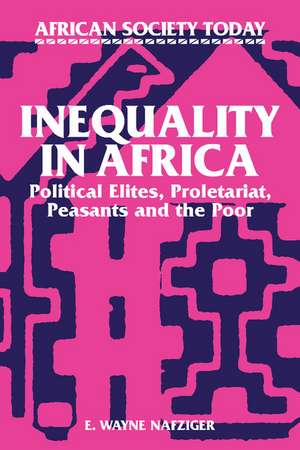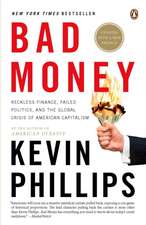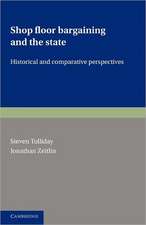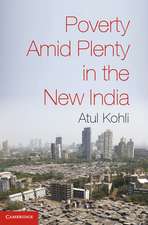Inequality in Africa: Political Elites, Proletariat, Peasants and the Poor: African Society Today
Autor E. Wayne Nafzigeren Limba Engleză Paperback – 24 aug 1988
Preț: 280.53 lei
Nou
Puncte Express: 421
Preț estimativ în valută:
53.69€ • 55.84$ • 44.32£
53.69€ • 55.84$ • 44.32£
Carte tipărită la comandă
Livrare economică 14-28 aprilie
Preluare comenzi: 021 569.72.76
Specificații
ISBN-13: 9780521317030
ISBN-10: 0521317037
Pagini: 220
Dimensiuni: 152 x 229 x 13 mm
Greutate: 0.28 kg
Editura: Cambridge University Press
Colecția Cambridge University Press
Seria African Society Today
Locul publicării:Cambridge, United Kingdom
ISBN-10: 0521317037
Pagini: 220
Dimensiuni: 152 x 229 x 13 mm
Greutate: 0.28 kg
Editura: Cambridge University Press
Colecția Cambridge University Press
Seria African Society Today
Locul publicării:Cambridge, United Kingdom
Cuprins
List of figures and tables; Acknowledgements; Glossary; Abbreviations; Map; 1. Equality and growth: tradeoff or interlink?; 2. Research without statistics: what are the questions?; 3. African incomes in global perspective; 4. The great descent: inequality and immiserisation; 5. The colonial roots; 6. Transnational relationships; 7. Capitalism, socialism, development and inequality; 8. The ruling class and the people: conflict and discrepancies; 9. Workers, the unemployed, peasants and women; 10. Maintaining class: the role of education; 11. Urban bias and rural poverty; 12. Catching the Nigerian disease: the ruling class and exchange rates; 13. Regional and ethnic inequality; 14. Income distribution in the late twentieth century; Notes; Bibliography; Index.
Descriere
This 1988 analysis argues that reducing inequality requires democratising political participation as well as economic control.

























